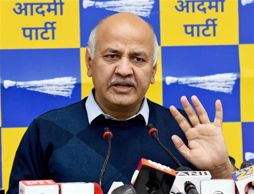
Women mourn their relative who was killed in a Taliban attack on December 16. Reuters
The world for once stood united in collective grief and shock at the massacre of innocent school children in Peshawar. The images of blood-splattered classrooms and grieving parents will haunt us for many years.
On TV, I vividly recall the image of a mother who, when she learnt about the shooting, ran as fast as her feet could take her to the school gate to find out if her child was alive or dead. We all watched helplessly as another mother shrieked at the injustice when she was informed that her son was among the dead. Or saw a father, numb with grief, staring at the face of his dead 14-year-old son framed in the coffin porthole. And another bearing the coffin of his son to a graveyard when ordinarily it should have been the other way round.
We empathised with all the parents who lost their children that day. For we know how it feels when one loses a near and dear one — the aching void and the harsh finality of death. And when a young and innocent life is snatched away in such a senseless and brutal manner, we tend to look upwards in askance at the divine as to why should fate deal us such a cruel blow.
There was no need to tell Pakistan that we told you so. Its leaders and citizens must be fully aware of the heavy price they all have to pay when the state covertly or overtly employs or supports terror as a tactic to achieve its goals. For, sooner rather than later, the Frankensteins we create turn against us and hurt us more than it does the enemy.
India is no exception. Recall how India nurtured Sri Lankan Tamils in the early 1980s by giving them arms and military training to battle the Lankan government and the backlash saw us lose thousands of Indian soldiers and a human bomb fell former Prime Minister Rajiv Gandhi. His mother and former Prime Minister Indira Gandhi also fell to bullets after she had stoked the flames of extremism in Punjab to retain political control of the state.
These days extremism has taken a more virulent and violent form that even the US, the most powerful nation in the world, has not been able to effectively combat. China may now have the largest economy in the world and is threatening US hegemony, but it does have a soft underbelly. Beijing remains paranoid about Tibet and is showing grown concern about Islamic extremism in Xinjiang province. Russia has its Chechnya. The list only grows.
So has India learnt its lessons and has our response been adequate? The answer sadly is that we don’t seem to have learnt or done much and the nation is far from secure. Last month, India observed the sixth anniversary of 26/11, which saw Mumbai being brought to its knees by a dozen Pakistan-sponsored terrorists. Our coastal security measures still have large gaps. The National Counter Terrorism Centre that was to be the nerve centre of Centre-state co-operation, including on intelligence and joint forces, has still not got off the ground. The National Investigation Agency remains hamstrung by jurisdictional issues, lack of staff and a limited mandate.
Even as we dawdle over improving our security setup, newer threats have shown their frightening face both abroad and within. The Sydney cafe episode, the day before the Peshawar strike, showed how a lone wolf could operate with impunity and bring one of the world’s busiest cities to a standstill for a day. The growth of the Islamic State in Syria and Iraq everyday brings to light new forms of brutality and newer concerns.
Soon after the Peshawar strike, the US President summoned his National Security Council and reviewed the threats to US citizens and worked out added safety measures. While the Narendra Modi government did well to express its sympathy and solidarity with Pakistan in its hour of grief, it is surprising that the Prime Minister, who is normally proactive, didn’t think it necessary to convene the Cabinet Committee on Security to assess the dangers to Indian citizens and review the security setup.
Two days later, the Union Home Ministry did send out a circular to all state governments to ask schools to take precautionary measures, including beefing up security at their entrances and constructing higher boundary walls. But for a PM who is a master of perception management, he would have been aware that on such matters government action must not only be done but also publicly seen to be done.
The Peshawar attack should not recede from our collective memory, as most such terror attacks do. Not just Pakistan, the entire world must introspect, for it is a blot on humanity.



























